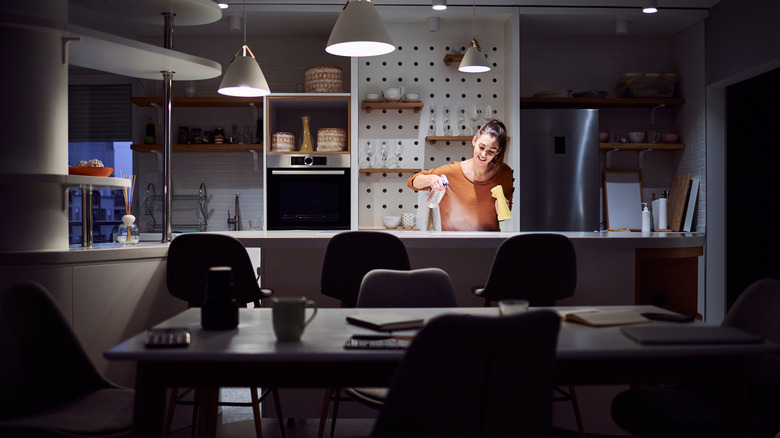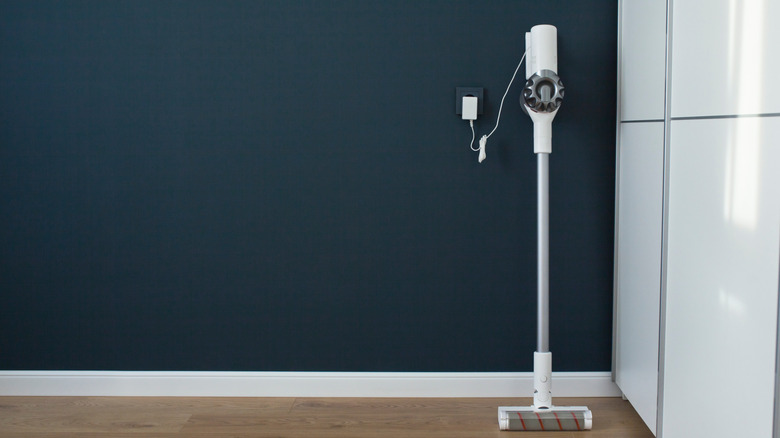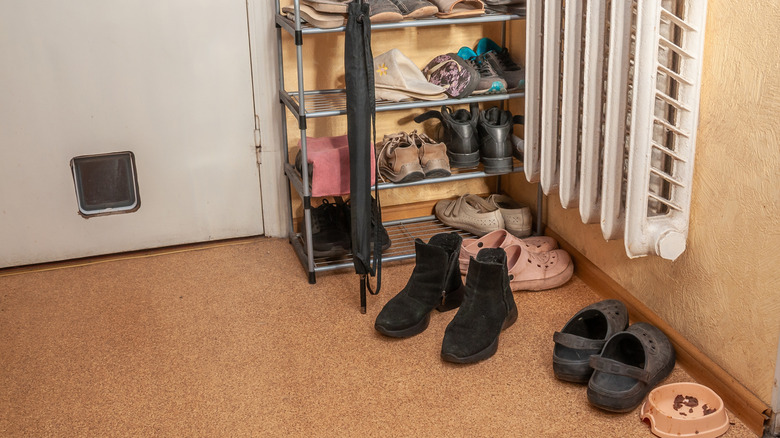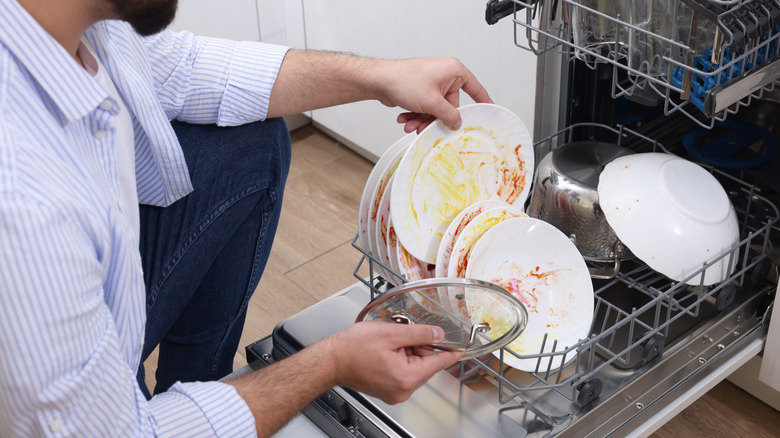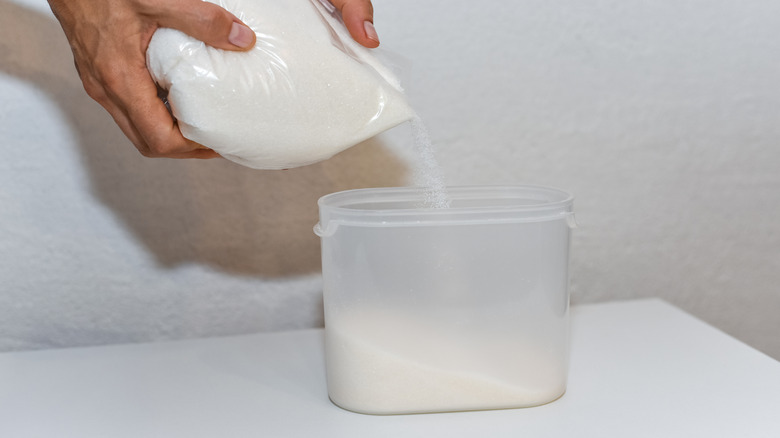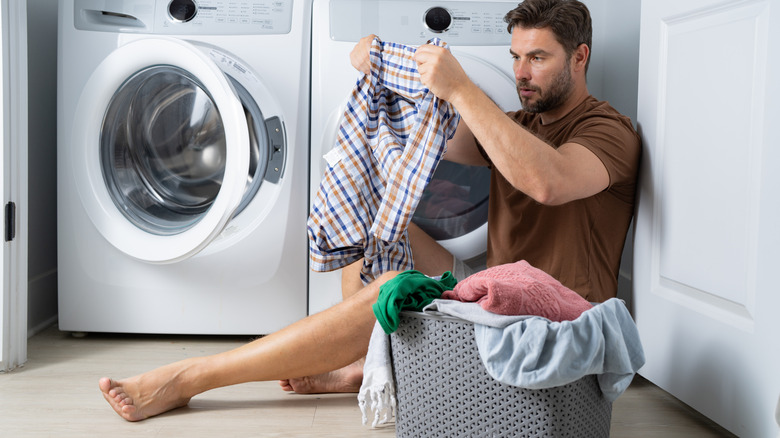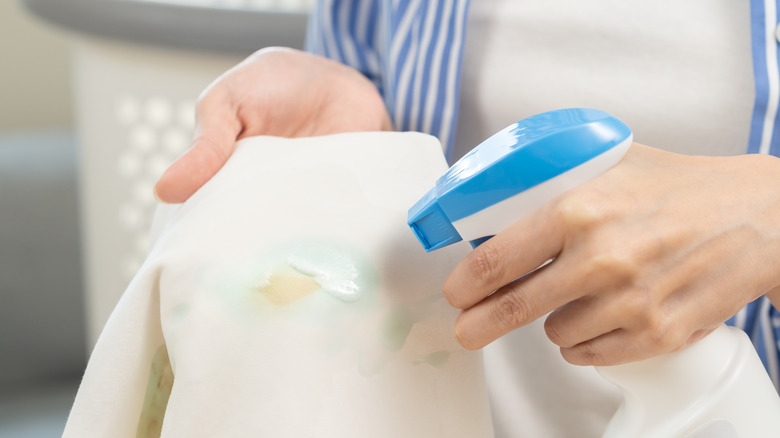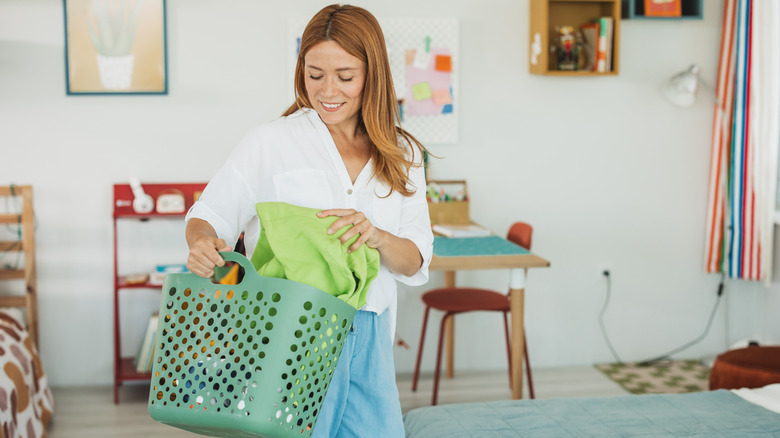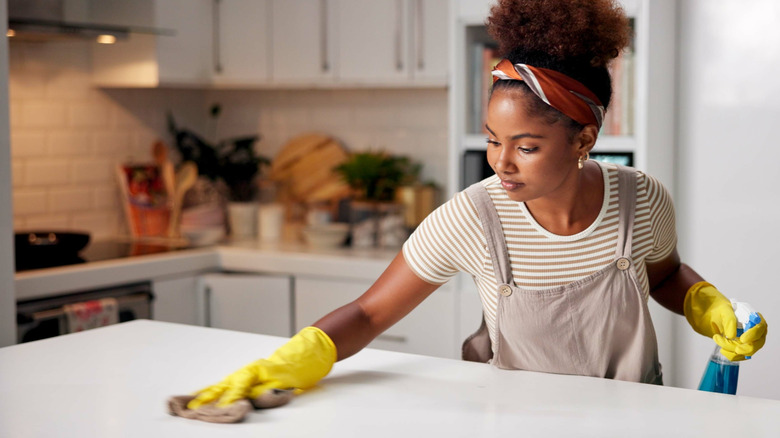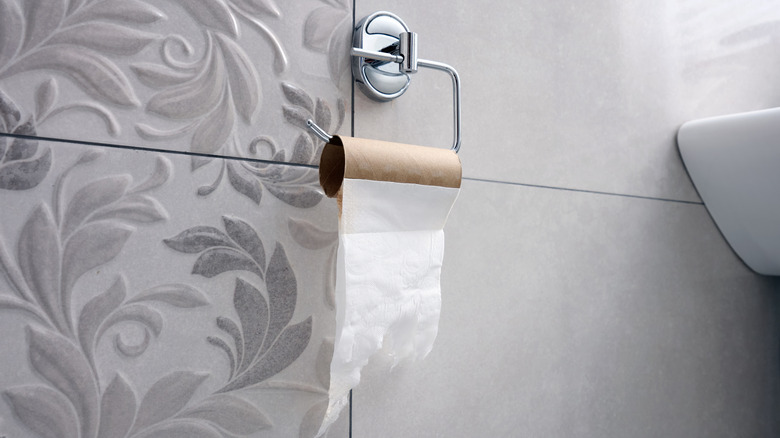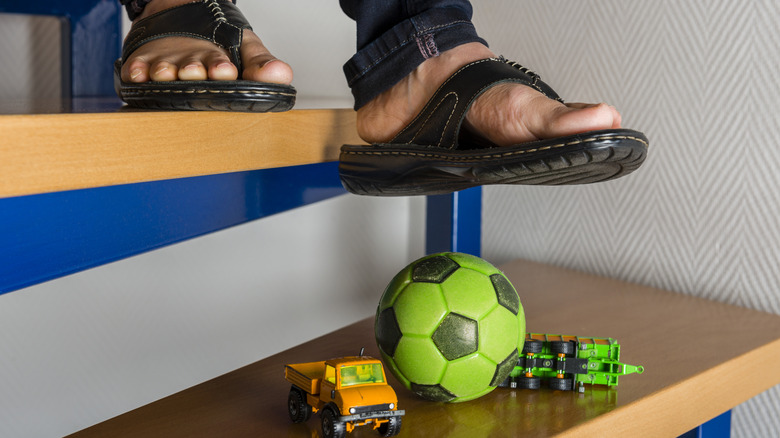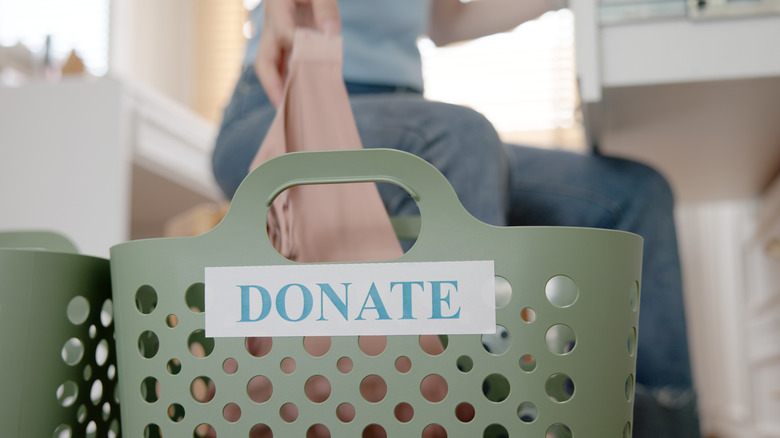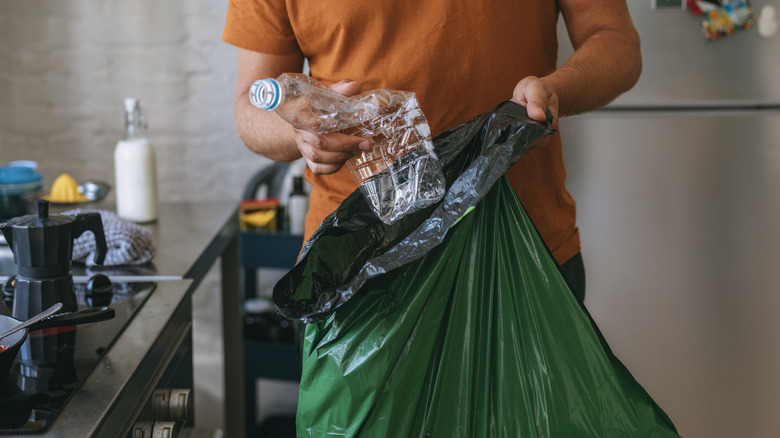14 Things You Can Do Before Bed Every Night To Stay Organized The Next Day
Want to know your secret weapon for morning success? Getting things done the evening before. By shifting small organizational chores, you're essentially buying back time, reducing stress, and waking up to a home that's already one step ahead of you. Think of it as setting the stage for a smoother start to your day. Even 10 minutes of tucking things away the previous night can save you more time the next morning.
That said, don't look at this extensive list of habits of people who keep their homes clean and organized and get discouraged. You can start small with a few items, then gradually add one habit every few days until the routine feels effortless and automatic. Initially, it's also a good idea to start the process early in the evening so it doesn't interfere with bedtime rituals. As time goes on and your space becomes tidier, each task will take less time, and what once was a two-hour tidying/cleaning session may shrink to a 30-minute check. The point is consistency, not perfection. Tiny, repeatable actions build momentum, make your mornings calmer and more productive, and foster a stronger baseline of orderliness in your space.
Charge your cordless vacuum and other battery-powered cleaning appliances
One of the hidden disadvantages of cordless appliances is that nothing can be done if the batteries die. So if you don't prep the evening before, you could grab your vacuum cleaner in the morning, only to find it gasping for power. Dead appliances doesn't just slow you down; they can derail your cleaning rhythm. Keeping them charged means no waiting around, no half-done cleanups, and no chores lingering until later.
As you begin your evening activities, plug in your battery-operated cleaning devices so they can start charging up. Before lights out, do a quick check to confirm they are charged, then unplug them before heading to bed. While many modern cordless devices have auto-shutoff measures to prevent overcharging, it's still not a good idea to leave them plugged in overnight. Thankfully, most of these appliances still perform well with partial charges, so you don't need to have the battery completely topped up for it to function the next day.
Lightly declutter the entryway before bed
A quick nightly tidy of your entryway prevents morning bottlenecks and that frantic scramble in search of your keys. The entryway is your main transition zone. When it's clear, you guarantee a faster, less stressful departure the next day. Leftover mail, stray shoes, and packages create visual clutter and extra morning chores, turning a five-minute exit into a rushed, anxiety-prone clean-up. Tidying the area before bed is a low-effort step with a high payoff, as you guarantee less wasted time and a smoother start to your day.
The most effective way to handle entryway clutter is to set up a dedicated drop zone. This could be a tray or bowl for small items, hooks for bags and coats, and a narrow shelf for mail. For families, install a low hook for kids' backpacks to encourage organizational habits early. Each evening, do a quick check and return items that don't belong, file important papers, put shoes away, and move packages to storage. By the time you're done, the area should be limited to daily essentials.
Arrange the living room before lights out
A tidy living room changes your morning mood before you even take a sip of coffee. Waking up to dishevelled cushions, blankets strewn across the couch, or scattered remotes creates low-level stress and steals precious focus. By spending a few minutes each night restoring order, you remove time blockages caused by dealing with yesterday's mess first thing in the morning. A quick evening reset primes your main living area to be a calm, usable space the next day, helping you transition straight into productive activity.
Keep the process fast and focused. Fluff and realign pillows, fold blankets neatly over the arm or back of the sofa, place remotes and chargers in a designated drawer or tray, and pick up stray clothes. Stack magazines or books in a tidy pile and clear toys into a basket to keep them organized. Aim for a one to three-minute visual sweep centered on restoring symmetry and clearing surfaces.
Empty the kitchen sink after dinner
Clearing the kitchen sink before bed is one of the highest-return evening habits you can adopt. The sink is one of the top ten things you should be cleaning in your house every day. Waking up to a clean, usable sink makes the entire space feel ready, so you can prepare food and carry out kitchen duties without being bothered by yesterday's mess. It also discourages pests and helps maintain general hygiene in the heart of the home, which is worth the few minutes it takes at night.
Make sure to rinse dishes immediately after use so it's easier to hand-wash or load the dishwasher without having to soak them. If you hand-wash, rinse the dishes and place them on a rack to air-dry so they're ready to be put away in the morning. Run the dishwasher overnight on an eco cycle to take advantage of off-peak electricity if your utility company offers it.
Refill kitchen essentials to avoid a morning scavenger hunt
There's nothing quite as frustrating as stumbling into the kitchen half-awake, only to find the sugar empty or your favorite coffee pods missing. A quick refill of your most-used kitchen staples before bed saves you from that oh-so-typical morning scavenger hunt. It's a tiny act of foresight that smooths out the most chaotic time of the day, those first few minutes when everyone's trying to eat, sip, and go. By restocking the basics, you set yourself up for easier cooking and meal prep.
Once the kitchen is clean and quiet after dinner, do a simple restock sweep. Check the sugar bowl, salt shaker, and cereal container to ensure they are stocked. Confirm your coffee beans or pods are prepped and ready, and mugs, spoons, and napkins are within reach. Families can keep a zone on the counter where essentials like cereals, tea, and vitamins are grouped for quick access when breakfast is being prepared and eaten. You can also meal prep for tomorrow's breakfast if you wish, but there's no need to overdo it.
Organize the laundry before bed
Evening is the perfect time to get ahead of laundry clutter before it multiplies. The first step is understanding the best ways to organize all the different kinds of clothing. Next, fold clean clothes and sort dirty ones to prevent piles from spreading into bedrooms or living spaces. This small nightly ritual sets a calmer tone for your morning, ensures your wardrobe stays in rotation, and stops clean clothes from getting mixed back in with dirty ones.
Spend a few minutes folding and hanging clean laundry, and encourage family members to handle their own. For dirty clothes, use divided hampers or labeled baskets, so sorting happens automatically. If your machine is quiet, consider running a wash cycle overnight so you can transfer the load to the dryer first thing in the morning. Creating a defined laundry schedule will keep clothes from spiraling into chaos and help you start the next day with fewer tasks.
Soak or pre-treat stained clothes overnight for easy cleanup
Discovering a stubborn stain when you're already in a rush to do laundry isn't ideal. Taking a minute at night to soak or pre-treat stained clothes transforms that dreaded scrubbing session into a simple rinse-and-wash task the next day. Overnight soaking allows the detergent or stain remover to fully penetrate and loosen the mark, whether it's coffee, sauce, or makeup, saving you both water and elbow grease later. Plus, pre-treating prevents stains from setting, which is especially useful for items you might not wash immediately.
Keep a stain remover spray or stick right beside your laundry hamper. As you toss in the day's clothes, do a quick scan for marks or discolorations. If you spot one, give it a light spray with your chosen pre-treatment, then let it sit for a few minutes before adding it to your overnight laundry cycle. If you decide to soak the clothes instead, make sure to use cold water. In the morning, just drain, wring gently, and pop the garment straight into the washer. Skipping pre-treating is one laundry mistake that can make stains way worse.
Organize your home workspace every evening
Resetting your workspace each night is one of the most effective ways to start your day feeling mentally prepared. A cluttered desk in the morning signals unfinished business to your brain, making it harder to focus. Meanwhile, a tidy, intentional setup creates an opportunity for deeper and more productive work. By dedicating five minutes to organizing the previous evening, you start each workday better.
The best approach is to clear loose papers and materials, then return all writing tools, chargers, and office supplies to their proper places. Wipe down your desk and straighten items. If you use a planner or to-do list, place it beside your desk, so it's the first thing you see in the morning. The goal is to make your workspace feel like an open runway, ready for immediate, focused productivity.
Do a quick walk-through of all rooms and remove things that don't belong
A nightly home walk-through or evening sweep is one of the simplest yet most impactful ways to maintain overall order. It prevents clutter from spreading across rooms and keeps your home looking consistently tidy, even on busy days. Doing this before bed means you're not greeted by random items scattered on counters, floors, or furniture first thing in the morning, a sight that often triggers low-level stress or decision fatigue. Also, clearing clutter is a good way to create a peaceful bedroom for a good night's sleep.
To make it easy, set a timer. This helps you eliminate distractions and have a set time for it to end, so that the task doesn't feel overwhelming. Carry a small basket or bin with you during this sweep and collect anything that's out of place, such as shoes near the couch, mail on the dining table, toys underfoot, or cups on nightstands. Once you've made your round, take a minute to return those items to their proper homes.
Clear out high-traffic surfaces
High-traffic surfaces tend to accumulate clutter faster than any other area of your home. These are the spots that have the most activity due to frequent use and where everyone naturally drops things like mail, keys, cups, skincare, receipts, and before you know it, they look like mini chaos zones. Clearing them out before bed promotes relaxation and reduces the feeling of overwhelm that comes from waking up to cluttered counters or tables.
To make this routine manageable, focus only on the most-used areas like kitchen counters, bathroom vanities, and coffee tables. Then, create designated spots where things can be stored to prevent them from being all around the house. Use an all-purpose cleaner that is safe for multiple materials like wood, marble, or laminate, and give each surface a quick wipe-down. Return stray items to their rightful homes as you go. You can even set a five-minute timer to make this feel more like a quick evening refresh than a chore.
Refill bathroom essentials to keep the morning routine smooth
Few things can derail your morning faster than realizing there's no toilet paper left or that you're out of toothpaste. Doing a quick bathroom supply check the night before keeps the morning routine flowing seamlessly. It's a simple, two-minute task that saves you from early chaos and awkward calls for help. Plus, it's one of those underrated tasks that instantly makes your home feel well-run and thoughtful.
Before heading to bed, do a quick restock check in every bathroom. Refill toilet paper holders and keep a spare roll within arm's reach. Check the levels of soap, toothpaste, and shampoo, and ensure they are where you normally keep them. Confirm essentials like towels and toothbrushes are conveniently positioned. You can even keep a small basket or drawer stocked with backup toiletries, mini toothpaste tubes, deodorant, and toothbrushes so you never run out when you're in a rush.
Clear the floors and walkways to prevent tripping
You don't truly appreciate clear walkways until you step on a rogue children's toy at 6 a.m. Clearing the floors, stairs, and hallways before bed is a safety precaution. Shoes, bags, and toys left lying around are easy hazards, especially in the dim light of night or during rushed mornings when you're not paying full attention. A tidy floor also makes your home feel instantly calmer, more spacious, and peaceful to navigate.
Make it a daily habit to do a floor reset before bed. This is one of many simple cleaning hacks to keep your home tidy. Designate specific zones for commonly misplaced items. During your evening walk-through, take a few extra seconds to push in chairs and realign small furniture pieces (like coffee tables) that might have shifted during the day. If you live with kids, consider adding a small bin in each room for quick and structured toss-ins. You can sort the items properly over the weekend.
Declutter as you go about your nightly home reset routine
Think of this as micro-decluttering, not an all-night organization marathon. As you do your usual nightly tidy-up, keep an eye out for those random items that are really not of use anymore. Extra travel mugs, mismatched socks, old shoes, and unused promotional pamphlets are common items you can get rid of to declutter your home, so work on tackling them.
The rule is simple. If you spot something that can be tossed, donated, or recycled in under a minute, take care of it right away. Have labeled bins or baskets around to hold these objects. Also, keep a small basket or box in a convenient spot to store items you're not entirely sure whether to donate or recycle, then monitor usage for a period of six months. Note that the goal here is light decluttering, so don't overdo it.
Gather trash and recycling before bed
Removing trash and recycling at night might not seem necessary, but it's one of the smartest ways to keep your home organized and hygienic. Taking a minute to clear out bins, especially those with food scraps, helps prevent morning overflow, unpleasant smells, and pests. It also ensures you don't miss early trash pickups. Ensure to use a disinfectant spray on the bin, then replace the trash liners right after removing each bag to prepare your bin for the next day.
To make this process quick and safe, treat it as your final nightly step. Walk through your home and consolidate all waste from the kitchen, bathrooms, and home office into one central bag. You don't have to take the trash outside immediately, especially if it's dark or unsafe. Instead, place the filled bag near your main exit so they are the first thing you take out when heading out in the morning.
